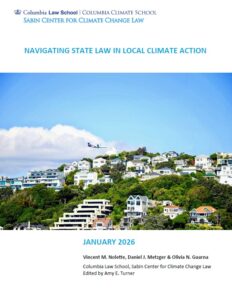H.R. 1 and State Budget Impacts With the passage of H.R. 1 in Congress and California’s 2025-2026 state budget, many California consumers will lose their health insurance and see their costs rise over the next several years. The severe cuts to care in the federal bill combined with the cuts to Medi-Cal in the state […] The post The State of Health Care Coverage appeared first on Health Access.
H.R. 1 and State Budget Impacts
With the passage of H.R. 1 in Congress and California’s 2025-2026 state budget, many California consumers will lose their health insurance and see their costs rise over the next several years. The severe cuts to care in the federal bill combined with the cuts to Medi-Cal in the state budget will result in as many as 5 million Californians losing coverage, and many more facing difficult choices to afford their care. Many will go uninsured, forcing them to the ER for the bare minimum emergency care, living without primary and preventive care, prescription drugs or comprehensive hospital care, living sicker and dying younger while being one emergency away from bankruptcy.
These cuts take us back to a pre-Affordable Care Act health care system , where emergency departments stabilized patients but did not provide preventive care or refer to follow up care, and those who are not eligible for Medi-Cal and do not get coverage through work will have little or no options for coverage. Nearly everyone will feel the effects of these cuts to our hospitals and providers, raising costs for everyone, including those with private coverage.
The chart below details the impacts to Californians in Medi-Cal, Covered California, and Medicare.
| Policy | Summary | Impacted Groups | Timeline |
|---|---|---|---|
| Medicaid | |||
| Prohibition on Abortion Funding through Medicaid | Prohibits Medicaid funds from being paid to providers that are nonprofit organizations, essential community providers engaged in family planning services or reproductive services, provide abortions outside of Hyde exceptions and received $800,000 or more from Medicaid in 2023. | Medi-Cal enrollees seeking reproductive health care and reproductive health care providers, including Planned Parenthood. | No funds will be paid between July 4, 2025 and July 3, 2026 |
| Provider Taxes: Managed Care Organization Tax (MCO Tax) |
H.R. 1 prohibits states from establishing any new provider taxes or from increasing the rates of existing taxes. These taxes support state costs for Medicaid, and are imposed as a percentage of provider revenues or a flat tax on the number of facility beds or impatient days.
As of July 4, 2025, MCO tax violates federal law by taxing Medi-Cal at $274 per enrollee and other coverage at $2 per enrollee: new federal law prohibits taxes on Medicaid enrollees that are higher than non-Medicaid enrollees. |
Hospitals and managed care plans will pay less in taxes.
A reduction in these funds will either require cuts to Medi-Cal, or cuts in other areas of the budget —like education, housing, or disaster aid—to back fill |
California is pursuing a transition period under the federal HHS Secretary, otherwise the MCO tax could be terminated retroactive to July 4, 2025.
This would require changes in state law to make the provider taxes compliant |
| Provider Taxes: Hospital Quality Assurance Fee (HQAF) | Hospital “QAF” may need to be revised to comply with new federal law. $5.9 billion from a tax on hospitals, known as a Hospital Quality Assurance Fee (HQAF). (QAFs for nursing homes and ICF-DD not affected by changes in federal law). | Unknown amounts for 2025–2026 state budget. Future years also uncertain. | California is pursuing a transition period under the federal HHS Secretary, but the implementation date is effective upon enactment— July 4, 2025. |
| Enrollment Freeze for Undocumented Adults | Freezes enrollment for undocumented adults. If any enrollee disenrolls from the program for any reason including failure to pay premium, they will not be able to re-enroll. | Undocumented adults age 19–64. | January 1, 2026 |
| Reinstatement of the Medi-Cal Asset Test | Restores the Medi-Cal Asset Test to $130,000 for an individual and $195,000 for couples. | Older adults and persons with disabilities. | January 1, 2026 |
| Immigrant Eligibility | Limits eligibility for Medicaid and CHP by excluding lawful immigrants previously eligible for services.ii
Lawfully residing children and pregnant adults are still eligible in 38 states, including California.iii |
Previously eligible immigrants, including people under the Five Year Bar, victims of human trafficking and domestic violence under U visas and T visas, will lose coverage. | October 1, 2026 |
| Work Requirements | Requires states to condition Medicaid eligibility to work or participate in qualifying activities for 80 hours/month or equivalent income at the federal minimum wage. iv,v | Medi-Cal enrollees ages 19-64. Does not include parents with medically frail children or parents with children 13 and under. |
No later than December 31, 2026 |
| Eligibility Determinations | States must conduct eligibility determinations every six months for Medicaid expansion adults. | All Medi-Cal expansion adult enrollees.vi | For renewals scheduled on or after December 31, 2026 |
| Retroactive Coverage | Limits retroactive coverage to one month prior to application for coverage for Medi-Cal expansion enrollees and two months for traditional enrollees. | Reduces retroactive coverage from three months for all Medi-Cal expansion enrollees.vii | January 1, 2027 |
| Medi-Cal Monthly Premium for Undocumented People | Imposes $30 monthly premium for all unsatisfactory immigration status Medi-Cal enrollees with a 90-day grace period. |
Immigrants 19 and over with Unsatisfactory Immigration Status.viii | July 1, 2027 |
| Elimination of Adult Dental for Undocumented People | Eliminates Adult Dental as a Medi-Cal benefit for undocumented people. | Immigrants 19 and over with Unsatisfactory Immigration Status.ix | July 1, 2027 |
| Home Equity Limits | Reduces maximum home equity limits to $1,000,000 regardless of inflation. | Medi-Cal enrollees needing long-term care. | January 1, 2028 |
| Cost-Sharing | Requires states to impose Medicaid cost-sharing of up to $35 per service for adults between 100–138% FPL Note: states can choose to charge less.x |
Medi-Cal adult enrollees who earn 100–138% FPL. | October 1, 2028 |
| Federal Medical Assistance Percentage for Emergency Medicaid | Limits federal matching payments for Emergency Medicaid for individuals who would otherwise be eligible for expansion coverage except for their immigration status to the state’s regular FMAP. | Hospitals paid less for these emergency services. | October 1, 2026 |
| Health Insurance Marketplace Provisions | |||
| Limits to ACA Marketplace Coverage Eligibility for Lawfully Present Immigrants | Limits eligibility for subsidized ACA marketplace coverage to lawfully present immigrants who are lawful permanent residents.
Eliminates subsidized Marketplace coverage eligibility for all lawfully present immigrants with incomes under 100% FPL. |
People with DACA status enrolled in Covered California. | H.R. 1 limits eligibility starting January 1, 2027 but a CMS Final Rulexi removes eligibility August 25, 2025
Under 100% FPL: January 1, 2026 |
| Shortened Open Enrollment Periodsxii | Shortens open enrollment periods to start no later than November 1st and end no later than December 31st—cannot exceed 9 calendar weeks. | All Covered California current and future enrollees, reducing the enrollment window from 3 months to 2 months. | 2026 Open Enrollment Period, which begins November 1, 2025. |
| Special Enrollment Periods and Tax Credit Eligibility |
Bars any consumer who enrolls in a plan outside of a Qualifying Life Event Special Enrollment Period from receiving premium tax credits or cost sharing reductions.
This includes people who enroll in Covered California outside of the Open Enrollment period and not related to a Qualifying Life Event |
All Covered California enrollees. | Plan years beginning after December 31, 2025 |
| End of Auto Renewals: Pre-enrollment Verification of Eligibility for Premium Tax Credit | Requires that household income, immigration status, health coverage status, place of residence and family size and any other additional information deemed necessary by the Secretary of HHS are verified before coverage. Consumers can enroll in a plan but cannot get premium tax credits or cost-sharing until after they verify eligibility.
Verification requirements can be waived for individuals enrolling due to changes in family size. |
Effectively ends auto-renewals for all Covered California enrollees. | Taxable years beginning after December 31, 2027 |
| Medicare | |||
| Limiting Medicare Coverage to U.S. Citizens | Restricts Medicare eligibility to U.S. citizens, green card holders, and certain immigrants from Cuba. Eliminates eligibility for people with temporary protected status, refugees and asylees.
Benefits will be terminated no later than 18 months for people currently receiving benefits but no longer eligible under these conditions. |
Certain immigrant groups will lose coverage, including people with temporary protected status, refugees and asylees. |
No later than January 4, 2027 |
Endnotes
- Does not impact lawfully present immigrants under the five-year bar and individuals claiming Permanent Residing Under Color of Law (PRUCOL)
- Restricts the definition of qualified immigrants for Medicaid or CHP to lawful permanent residents, certain Cuban and Haitian immigrants, citizens of the Freely Associates States lawfully residing in the US.
- The ICHIA option provides states an option to enroll lawfully residing immigrant children and pregnant women in Medicaid and CHIP.
- If a person is denied or disenrolled due to work requirements they also cannot apply for subsidized Marketplace coverage.
- Requires states to use data matching to verify if an individual meets the requirement or qualifies for an exemption.
- Adults, with or without children, up to age 64 with incomes up to 138% of the Federal Poverty Level.
- Adults, with or without children, up to age 64 with incomes up to 138% of the Federal Poverty Level.
- UIS Definition includes lawfully present immigrants under the five-year bar and individuals claiming Permanently Residing Under Color of Law (PRUCOL)
- UIS Definition includes lawfully present immigrants under the five-year bar and individuals claiming Permanently Residing Under Color of Law (PRUCOL)
- Exempts primary care, mental health and substance abuse disorder services – limits for prescription drugs
- This is in the CMS Final Rule
The post The State of Health Care Coverage appeared first on Health Access.










